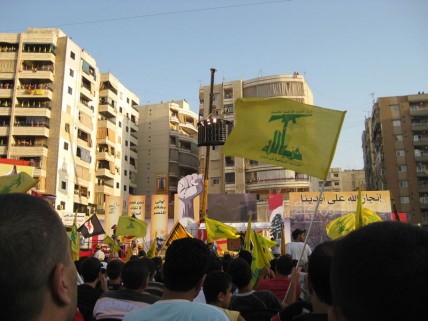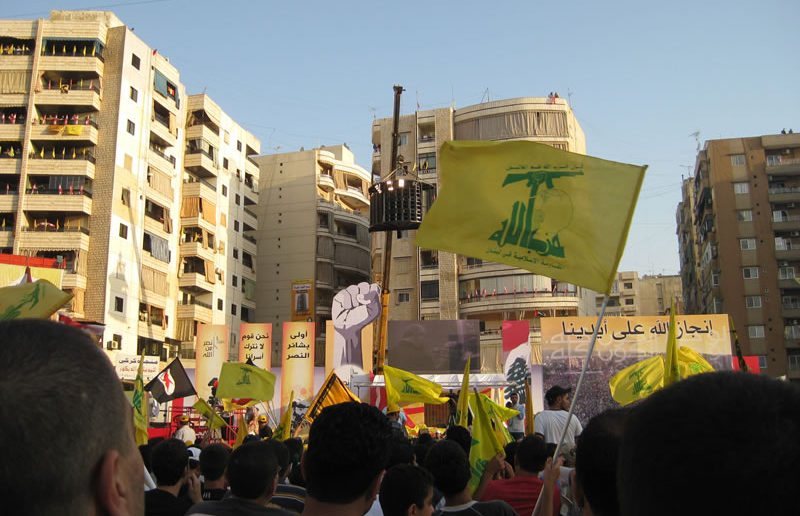
Hezbollah rally in Beirut, Lebanon in 2008. Photograph by Tim Dickinson
Pressure is growing on the EU to blacklist Hezbollah as a terrorist organisation after a probe concluded that the Shiite group was behind the 2012 bus bomb attack in Bulgaria against Israeli tourists. But with the organisation so entrenched in Lebanese society, what effect would this have on the country?
Hezbollah grew to prominence during the 1982 Israeli invasion of Lebanon, where their guerrilla warfare tactics and arms funding from Iran fought off the better equipped Israeli forces. Hezbollah has since embedded itself within Lebanese civil society with its financing of schools, orphanages, hospitals, and the building of high-rise housing. They are also a political party and hold seats in the Lebanese parliament, and as such it is nearly impossible to divorce them from the state of Lebanon.
The majority of their work in recent years has been in the political and social spheres, but their rhetoric towards neighbouring Israel remains aggressive, and the armed militias that they maintain remain a constant threat to Israelis. There is a dichotomy between the social and paramilitary sides of Hezbollah, but with the Hezbollah leadership striding both wings.
Earlier this month an official report concluded that Hezbollah were the likely perpetrators behind the 2012 terrorist bombing of a Bulgarian bus killing five Israeli tourists and the local driver. This has pushed some politicians within the EU, such as Germany’s Philipp Mißfelder, to condemn the organisation as a terrorist group in a similar way to how Hamas in Gaze is described. Once they are designated a terrorist organisation, says Mißfelder, then the European security services could act more “severely” with the group and open up the possibility of sanctions.
Such a designation could cause issues for trade and co-operation between the EU and Lebanon, and push more of the population towards supporting the group. This would result in Hezbollah finding greater power and influence within the Lebanese borders. A more careful approach, such as superficially creating a division between the social/political and military wings of the group, could offer a better solution. This approach has already found success in helping to open relations between the UK government and Sinn Fein, whilst blacklisting the IRA paramilitary group. Hezbollah has found strength when put under external pressure in the past and will do again, with many members of the group on the ground already perceiving hypocrisy in the different ways that the EU and US treat them compared to the Israeli military.
Engagement is the only way to find progress in relations, and Hezbollah has an important official social and political side that the EU should embrace. Blacklisting such a popular group will simply alienate the population and give the group greater power and influence, and push them further underground. President Assad’s regime in Syria is on the verge of collapse after two years of civil war, and this leaves Hezbollah more vulnerable than ever, which means that now is the time to open relations further with the group and not shut them off.




